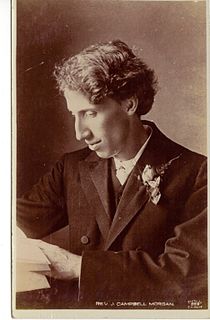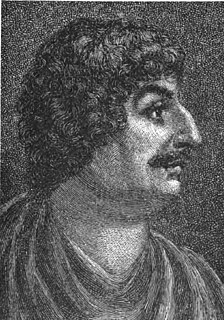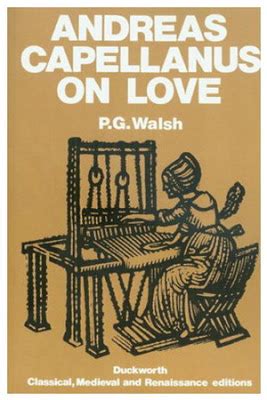A Quote by Philip James Bailey
Any heart turned Godward feels more joyIn one short hour of prayer, than e'er was raisedBy all the feasts of earth since its foundation.
Related Quotes
The Lord's Prayer "is truly the summary of the whole gospel." "Since the Lord...after handling over the practice of prayer, said elsewhere, 'Ask and you will receive,' and since everyone has petitions which are peculiar to his circumstances, the regular and appropriate prayer (the Lord's Prayer) is said first, as the foundation of further desires.
In prayer, it is better to have heart without words, than words without heart. Prayer will make a man cease from sin, or sin entice a man to cease from prayer. The spirit of prayer is more precious than treasures of gold and silver. Pray often, for prayer is a shield to the soul, a sacrifice to God, and a scourge for Satan.
Prayer is like practicing the piano or ballet or writing: you have to bring your body for a very long time, in spite of your body’s frailties and conflicts and general revolt, and then one day your body is not separate any more. You’ve in a sense become the piano or the dance or the word or the prayer. The prayer is in your heart. The prayer is your heart.
One form of prayer moves us particularly to take up the task of evangelization and to seek the good of others: it is the prayer of intercession. Let us peer for a moment into the heart of Saint Paul, to see what his prayer was like. It was full of people: "...I constantly pray with you in every one of my prayers for all of you... because I hold you in my heart" (Phil 1:4, 7). Here we see that intercessory prayer does not divert us from true contemplation, since authentic contemplation always has a place for others.
Some people find the experience and practice of compassion as a spiritual discipline to be a more direct route to the transformation of the heart than prayer. It is not that prayer does not or should not play a role in their lives, but their way to the opening of the heart lies through deeds of compassion. "Just do it" summarizes this path of transformation.
And then he drew a dial from his poke, And looking with lack-lustre eye, Says very wisely, 'It is ten o'clock: Thus we may see', Quoth he, 'how the world wags: 'Tis but an hour ago since it was nine, And after one hour more 'twill be eleven; And so from hour to hour we ripe and ripe, And then from hour to hour we rot and rot.






































